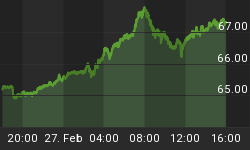As the pendulum swings between greed and fear, investors typically become over-enthusiastic during bull markets and over-despondent as the bear's growl grows louder.
It stands to reason that in order to be a successful investor, it is important to distance yourself from the herd mentality and to take objective decisions based on fundamental reasons.

The typical behaviour of investors is linked to the so-called investor psychology cycle (courtesy RMB Unit Trusts), as illustrated below.

Before seeking to apply the cycle to the present stock market situation, let's consider a short definition of each of the stages.
Contempt: According to the cycle, a bull market typically starts when a market is at a low and investors scorn stocks.
Doubt and suspicion: They try to decide whether what they have left should be invested in a safe haven such as a money market fund. They have burnt their fingers with stocks and vow never to invest again.
Caution: The market then gradually starts showing signs of recovery. Most investors remain cautious, but prudent investors are already drooling at the possibility of profit.
Confidence: As stock prices rise, investors' feeling of mistrust changes to confidence and ultimately to enthusiasm. Most investors start buying their stocks at this stage.
Enthusiasm: During the enthusiasm stage, prudent investors are already starting to take profits and get out of the stock market, because they realise that the bull market is coming to an end.
Greed and conviction: Investors' enthusiasm is followed by greed, which is often accompanied by numerous IPOs on the stock market.
Indifference: Investors look beyond unsustainably high price-earnings ratios.
Dismissal: As the market declines, investors show a lack or interest that quickly turns to dismissal.
Denial: Then they reach the denial stage where they regularly affirm their belief that the market definitely cannot fall any further.
Fear, panic and contempt: Concern starts to take a hold and fear, panic and despair soon follow. Investors again start scorning the market and once again they vow never to invest in stocks again.
In order to determine where in the stock market cycle we find ourselves, the challenge is to identify the prevalent stage of the psychological cycle. I would, for starters, argue that we are on the right-hand side of the curve, but how far down the slippery slope sentiment has declined is less clear. It would seem that we are possibly in the region of the "denial"/"fear"/"panic" phases. Although enduring investor panic and fear have not really set in, the January, March and July sell-offs did witness climatic, albeit short-lived, bouts of despair.
Time will tell whether we are dealing with a typical investor psychology cycle and how it will play itself out. It does, however, seem that we are at not at the "contempt" stage yet, i.e. when investors scorn shares en masse and a bull market typically starts.
I do believe we are still in a primary bear market where stock markets are, at best, faced with a prolonged convalescence period characterized by sub-optimal returns. Whether significant further declines will take place from these levels and valuations overshoot to bargain levels, triggering bouts of panic and fear, is anybody's guess.
However, in the short term I give the nascent stock market rallies the benefit of the doubt provided the mid-July lows are sustained. For any rally to become more enduring will require further base building - possibly wearing investors out to the point of contempt - and an eventual shift in central bank policy to targeting GDP growth rather than inflation.















